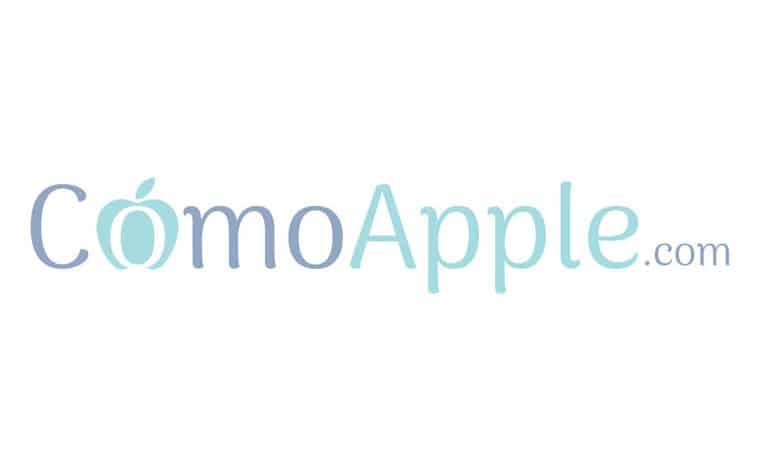
Amazingly, how do I clear my MacBook Air hard drive? Delete unneeded media, such as music or movies or podcasts, which can use a lot of storage space. Delete unneeded files in the Downloads folder. You can open the Downloads folder from the Dock or by choosing Go > Downloads from the menu bar in the Finder. Delete unneeded email in the Mail app.
Additionally, what is the best way to clean up my Mac hard drive?
- Step One: Update your software.
- Step Two: Tidy up your start up.
- Step Three: Clean out unused apps.
- Step Four: Clean out the downloads folder.
- Step Five: Tidy up your storage disk.
- Step Six: Clean out the cache.
- Step 7: Remove resource-hungry programs.
- Step 8: Take out the trash.
Beside the above, how do I free up disk space?
- Uninstall unnecessary apps and programs.
- Clean your desktop.
- Get rid of monster files.
- Use the Disk Cleanup Tool.
- Discard temporary files.
- Deal with downloads.
- Save to the cloud.
Also, is clean my Mac safe? CleanMyMac X is a safe, all-in-one Mac cleaner that removes gigabytes of unnecessary junk and malware. How safe is it? Well, it’s notarized by Apple, has a Safety Database, and is safe enough to earn some serious awards from the Mac community.
- Clean up system files and documents. A clean Mac is a fast Mac.
- Detect & Kill Demanding Processes.
- Speed up startup time: Manage startup programs.
- Remove unused apps.
- Run a macOS system update.
- Upgrade your RAM.
- Swap your HDD for an SSD.
- Reduce Visual Effects.
How can I make my macbook run faster?
- Step 1: Restart occasionally.
- Step 2: Limit the apps you have open.
- Step 3: Limit your number of web browsing tabs.
- Step 4: Remove unused apps.
- Step 5: Reduce the number of apps in your Dock.
- Step 6: Get rid of your screen saver.
- Step 7: Upgrade your memory.
Why is my hard drive so full?
Generally speaking, it is because the disk space of your hard drive is not enough to store a large amount of data. Additionally, if you are only bothered by the C drive full issue, it is likely that there are too many applications or files saved to it.
How do I find out what files are taking up space on my Mac?
- Click on the Apple logo in the top left.
- Choose About This Mac.
- Click on the Storage tab and wait while it calculates.
- Hover over the different bars to see what each represents and how much space they are taking up.
Is it safe to Disk Cleanup?
Overall, you can safely delete almost everything in Disk Cleanup as long as you don’t plan on rolling back a device driver, uninstalling an update, or troubleshooting a system problem. But you should probably steer clear of those “Windows ESD Installation files” unless you’re really hurting for space.
What does Apple say about CleanMyMac?
Answer: A: NO! There is no reason to ever install or run any 3rd party “cleaning”, “optimizing”, “speed-up”, anti-virus, VPN or security apps on your Mac. This user tip describes what you need to know and do in order to protect your Mac: Effective defenses against malware and other threats – Apple Community.
Is CleanMyMac Necessary?
The short answer is YES, you need. Sure, so much has changed on the inside and outside of macOS since the release of Monterey. However, some things have not. For instance, when you use your Mac and the apps you have installed, the system will still generate junk files.
Is CleanMyMac free?
CleanMyMac X is a paid application that requires either a license or subscription to unlock all its features. However, you can try CleanMyMac X for free before making a purchase at our store. The application has a trial mode with a range of limitations, but its free features are still helpful.
How do I remove junk files from my Mac?
Delete unneeded files in the Downloads folder. You can open the Downloads folder from the Dock or by choosing Go > Downloads from the menu bar in the Finder. Delete unneeded email in the Mail app. To delete junk mail, open Mail and choose Mailbox > Erase Junk Mail.
Why is my MacBook air so slow all of a sudden?
Your Mac may be slow due to an outdated macOS or an overloaded cache. Malware can also infect your Mac and slow it down by hogging system resources. If your Mac is old, it might struggle to run modern software, and you may need to replace it.
Why is my Mac book air so slow?
If you find your Mac is running slowly, there are a number of potential causes that you can check. Your computer’s startup disk may not have enough free disk space. To make disk space available, you can move files to another disk or an external storage device, then delete files you no longer need on the startup disk.
Why is my Mac so slow all of a sudden 2021?
These are some of the most common reasons for a slow running Mac: You’re running low on RAM. Your hard drive is too full. There are too many files on your desktop.
Why is my hard drive so full Mac?
System cleanup in one click Once “Your disk is almost full” notification pops up on a screen, it’s time to do some work. Running low on storage might cause your Mac to slow down or behave strangely. This usually happens if you have too many outdated files, old logs, caches, and apps you no longer use.
Why is my hard drive still full after deleting files?
Available disk spaces does not increase after deleting files. When a file is deleted, the space used on the disk is not reclaimed until the file is truly erased. The trash (recycle bin on Windows) is actually a hidden folder located in each hard drive.
Can’t find what’s taking up hard drive space?
- Open Settings on Windows 10.
- Click on System.
- Click on Storage.
- Under the “(C:)” section, you will be able to see what’s taking up space on the main hard drive.
- Click the Show more categories option to view the storage usage from other file types.
What is taking up so much space in other on my Mac?
What is Other storage on a Mac? The Other category on Mac storage consists of all the files that don’t fit into any of the standard categories, such as Apps, Photos, Documents, Audio, or Video. The Other folder on Mac can fill up fast with cached and temp files and other file types.
How do I free up space on my Mac hard drive with this simple trick?
- Empty the Trash.
- Uninstall Apps You Don’t Use.
- Find and Delete Large Files.
- Delete Old iTunes Files and iOS Backups.
- Take a Look at Cloud Storage Apps.
- Optimize Storage in the Photos App.
- Store Desktop and Documents in iCloud.
What happens if I delete all cache files on Mac?
It’s good to be careful about deleting stuff from your Mac, but it’s generally safe to remove cached data. You shouldn’t run into any major issues if you delete cached files from system-level (/Library/Caches/) and user-level folders (~/Library/Caches/).
What should I not delete in Disk Cleanup?
You’d Better Not Delete Windows ESD Installation Files in Disk Cleanup. There is one file category you should not delete in Disk Cleanup. It is Windows ESD installation files. Usually, the Windows ESD installation files take up a few gigabytes of disk space on your computer.
Why clean up drive is important?
By participating in clean-ups, citizens can create immediate results and permanent changes in their local areas. Clean-ups should serve as catalysts for permanent changes in attitudes and behaviour and encourage adoption of practices (i.e. recycling) that can have a profound effect on waste management in the community.
How often should you disk clean your computer?
If you don’t want to hurt your PC’s performance and lifespan with the added stress and heat, give it a good cleaning at least every six month to a year. While the average user’s computer lasts several years, true cleaning of hardware and software could extend your PC’s useful life by a few more years.
Is MacKeeper good for your Mac?
Yes, MacKeeper will protect your Mac against viruses and malware. You’ll be able to run virus scans that will detect a variety of malware, including adware and trojans. MacKeeper also protects your device in real-time — preventing any malware from infecting your Mac in the first place.
What antivirus should I use for Mac?
Free Mac Antivirus Protection Avast One Essential for Mac, AVG AntiVirus for Mac, and Avira Free Antivirus for Mac are totally free for personal use. The best commercial products offer more protection but if you can’t afford the best, at least install a free antivirus.
Is it safe to delete cache files on Mac?
Yes, it is safe. That said, don’t just delete all the contents of your cache folder without reason. It can be beneficial to clear out those taking up the significant space in your ~/Library/Caches/ if you need to free some up, but you really shouldn’t clear any contents of your /System/Caches unless there is a problem.
Does CleanMyMac detect viruses?
CleanMyMac X goes after malware by digging out viruses, spyware and other programs designed to piggyback onto your computer’s processor. MacPaw keeps its database of malware — and the fixes — up to date, so CleanMyMac X is able to keep up with the latest generation of viruses.
Is CleanMyMac a Antivirus?
CleanMyMac X is a fresh new player on the antivirus market. Which one gives you best protection for your money? Below we’ve compared these anti-malware solutions so you can make your own opinion.
Does CleanMyMac do anything?
It cleans unneeded files, like outdated caches, broken downloads, logs, and useless localizations. You can remove tons of clutter that lurks in iTunes, Mail, Photos, and even locate gigabytes of large hidden files. Mac cleaning tools in CleanMyMac X will cut the extra weight in seconds.
Does CleanMyMac free up RAM?
CleanMyMac X, MacPaw Click on Free Up in the memory section and the software will start to free up your RAM. There are also options for freeing up storage space.
How long does a MacBook Air last for?
So, in answer to the question: How long do Macs last? We’d say five to eight years, but beware that you probably won’t be able to replace any faulty parts in a Mac when more than five years has passed since Apple last sold it. Before you buy a new Mac, read our article about the best time to buy a Mac or MacBook.
Why is my Mac so slow and unresponsive?
There are several other reasons why your Mac might be running slower: Limited hard drive space available. Too many apps running. Lots of cache and log files in use.
Why is my Mac making a fan noise?
Your Mac fan may kickstart when you’re running intensive tasks or resource-heavy apps that make your Mac overheat. With MacBooks in particular, fan noise can sound as though your Mac wants to take off. By the way, in case of overheating, your Mac usually slows down.
